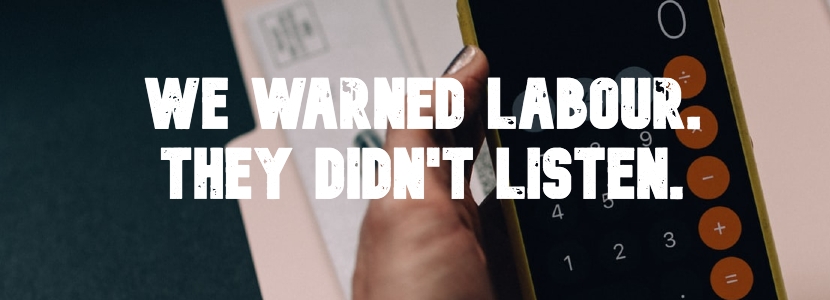
One of the most damning criticisms of Croydon’s failing Labour Council that has got our town into such a terrible mess is that financial reserves were an afterthought rather than a focus. It is not that they weren’t warned. As external auditor Grant Thornton points out in their Statement in the Public Interest Croydon has had an unsustainably low level of reserves for some time. Labour just failed to do anything about it, preferring instead to complain that the government didn’t give them enough money, ignoring the fact that managing the Council’s finances is what they are paid for.
Amongst the many bitter ironies of the Croydon Labour Party manifesto on which they were first elected in 2014 are lines like “We will take a tough and prudent approach to managing the council’s finances” and “a Labour council will take a radical approach to overhauling and managing the council’s finances.” The reality, as with so many of their promises, remember “accountable, open and transparent council”, is quite different.
But back to reserves. Financial reserves are there to cater for unexpected extra costs or loss of income. They ensure that the organisation does not get blown off course by short-term issues that are part of running a complex business. You don’t know what the issues will be, but you know they will occur. On the other hand, money sitting in reserves does not benefit Croydon’s residents so reserves should not be too large.
Complicating the picture is that legislation constrains local authorities such that not all money is equal. Income from certain sources can only be spent on particular areas. However the most important pot of money is the General Fund. This is money over which the council has discretion and so is largely unconstrained on how it can be spent. Since we don’t know where unexpected issues might occur, this is where we need to keep our reserves.
So how much should we keep in reserves? That depends (doesn’t it always). It depends on the size of the Council, so it is normally calculated as a proportion of net operating expenditure (the amount of money the council spends on day-to-day operations). On this measure Croydon had the lowest level of reserves of any London Borough.

But the appropriate level also depends on risk. If the council is pursuing bread and butter activities, the same activities that it has run year-in year-out, and can demonstrate that it has been managing this well then the risk is low and reserves can be lower. But if the council is pursuing high risk activities and has failed year after year to manage its finances then the risk is high, so reserves should be higher.
Croydon’s failing Labour Council not only pursued high risk activities, such as speculative property investment, it also failed year after year to manage the finances. As is required by law, balanced budgets were set, but were never delivered. Over-spending was endemic, eroding reserves year by year. The auditor criticised both the Cabinet and the Scrutiny and Overview Committee for failing to point out that if the spending gap of £65 million forecast for 2020/21 was not closed, the reserves were now insufficient to cover this and the Council would be forced to submit a Section 114 notice, effectively declaring they were bust.
That’s a triple whammy: increased risk from property speculation and overspending, low reserves further eroded by the overspending, and persistent denial of the problem. It did not need the Covid19 pandemic for this to be exposed. As has been shown by the auditor, the Council’s luck had already run out by 31st March of this year.
Can the previous Conservative administration be blamed? Even the most fervent Labour supporter would be hard put to do that, though no doubt they will give it a try. But the numbers don’t lie, the reserves since 2014 when the Conservatives left office, to date, are shown in the graph. The Conservatives left behind reserves of £80 million. Labour frittered this away in five years to less than £20 million. Was this pointed out? Yes it was, frequently.
In response we were typically treated to long speeches blaming the government. The new Labour leadership following the departure of Councillors Newman and Hall, were typically on these occasions nodding their heads vigorously in support of their then leaders. On the rare occasions the Conservatives got to ask specific questions on reserves, Councillor Hall would, after the government-blaming, point to the level of the General Fund balance, which had little changed. What he omitted to mention was the erosion in the major element of the reserves, the greatly increased risk and the failure to meet budgets.
This sad situation would eventually have come out anyway, although the pandemic may have brought it forward by a few months. Unfortunately, the opportunity to remove Labour from office in the Town Hall is still eighteen months away. In the meantime, there are some new faces leading the Council, but those are the same faces that were nodding enthusiastically at the policies and the decisions that got us into this mess. Croydon deserves better.



